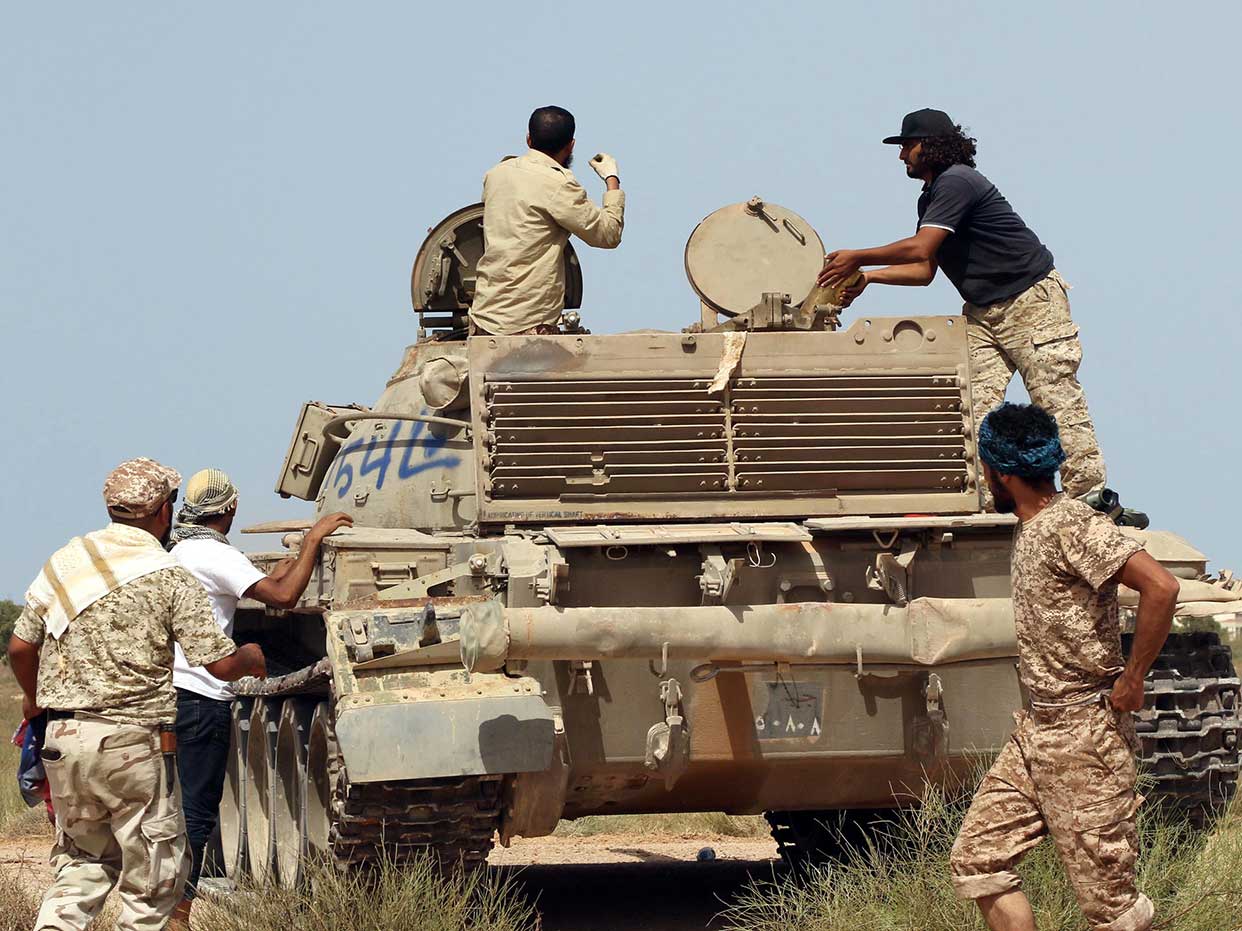US strikes at Islamic State in Libya
Air raid on terrorist group's positions in Sirte came at request of unity government and was authorised by Barack Obama

A free daily email with the biggest news stories of the day – and the best features from TheWeek.com
You are now subscribed
Your newsletter sign-up was successful
The US has launched air strikes on Islamic State forces in Libya following a request from the country's UN-backed government.
The action is "the first direct US involvement in the fierce battle" around the coastal city of Sirte, says the Washington Post, and is "a significant expansion of the American campaign" against IS.
The strikes were successful, according to Libyan Prime Minister Fayez Sarraj, who leads the Libyan Government of National Accord.
The Week
Escape your echo chamber. Get the facts behind the news, plus analysis from multiple perspectives.

Sign up for The Week's Free Newsletters
From our morning news briefing to a weekly Good News Newsletter, get the best of The Week delivered directly to your inbox.
From our morning news briefing to a weekly Good News Newsletter, get the best of The Week delivered directly to your inbox.
"The first air strikes were carried out at specific locations in Sirte today causing severe losses to enemy ranks," he said.
The Pentagon confirmed US involvement in the raid, saying it had been authorised by President Barack Obama and is "consistent with our approach to combating IS by working with capable and motivated local forces".
Pentagon press secretary Peter Cook also said "additional US strikes" would be carried out to allow local ground forces to make a "decisive, strategic advance" on the city after weeks of heavy fighting.
Libyan forces began their campaign to re-take Sirte three months ago. The city became an IS stronghold after the removal of Muammar Gaddafi's government in 2011.
A free daily email with the biggest news stories of the day – and the best features from TheWeek.com
According to the Libya Herald, "354 Libyan troops have been killed and more than 2,000 wounded since the start of operations against Islamic State in Sirte".
The involvement of the US in an ongoing air campaign in Libya may work in the short term, says BBC correspondent Rana Jawad, but the situation in the country is likely to remain quite volatile for some time.
"The wider military and militia forces across Libya are still embroiled in local rivalry," she says. "In the aftermath of campaigns of this kind, the US, and other countries involved in Libya, will probably be left with more questions than answers over the stability of the country and the local forces they backed."
-
 The mystery of flight MH370
The mystery of flight MH370The Explainer In 2014, the passenger plane vanished without trace. Twelve years on, a new operation is under way to find the wreckage of the doomed airliner
-
 5 royally funny cartoons about the former prince Andrew’s arrest
5 royally funny cartoons about the former prince Andrew’s arrestCartoons Artists take on falling from grace, kingly manners, and more
-
 The identical twins derailing a French murder trial
The identical twins derailing a French murder trialUnder The Radar Police are unable to tell which suspect’s DNA is on the weapon
-
 Epstein files topple law CEO, roil UK government
Epstein files topple law CEO, roil UK governmentSpeed Read Peter Mandelson, Britain’s former ambassador to the US, is caught up in the scandal
-
 Iran and US prepare to meet after skirmishes
Iran and US prepare to meet after skirmishesSpeed Read The incident comes amid heightened tensions in the Middle East
-
 Israel retrieves final hostage’s body from Gaza
Israel retrieves final hostage’s body from GazaSpeed Read The 24-year-old police officer was killed during the initial Hamas attack
-
 China’s Xi targets top general in growing purge
China’s Xi targets top general in growing purgeSpeed Read Zhang Youxia is being investigated over ‘grave violations’ of the law
-
 Panama and Canada are negotiating over a crucial copper mine
Panama and Canada are negotiating over a crucial copper mineIn the Spotlight Panama is set to make a final decision on the mine this summer
-
 Why Greenland’s natural resources are nearly impossible to mine
Why Greenland’s natural resources are nearly impossible to mineThe Explainer The country’s natural landscape makes the task extremely difficult
-
 Iran cuts internet as protests escalate
Iran cuts internet as protests escalateSpeed Reada Government buildings across the country have been set on fire
-
 US nabs ‘shadow’ tanker claimed by Russia
US nabs ‘shadow’ tanker claimed by RussiaSpeed Read The ship was one of two vessels seized by the US military